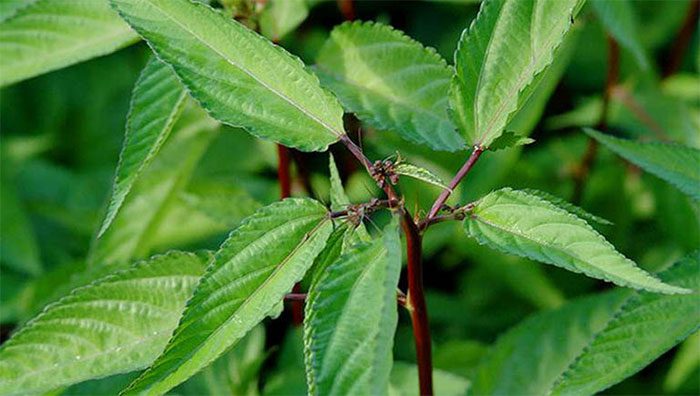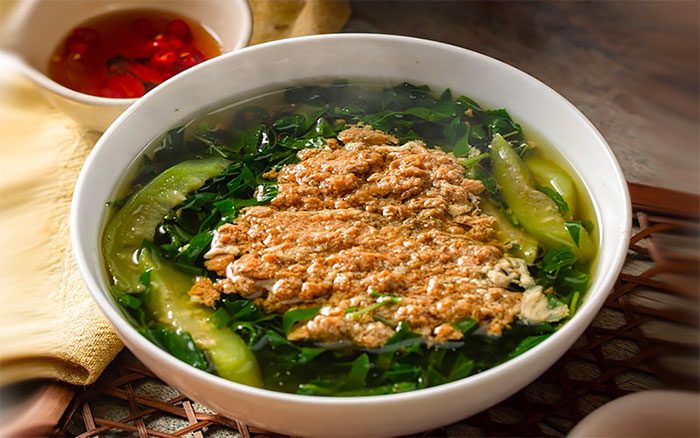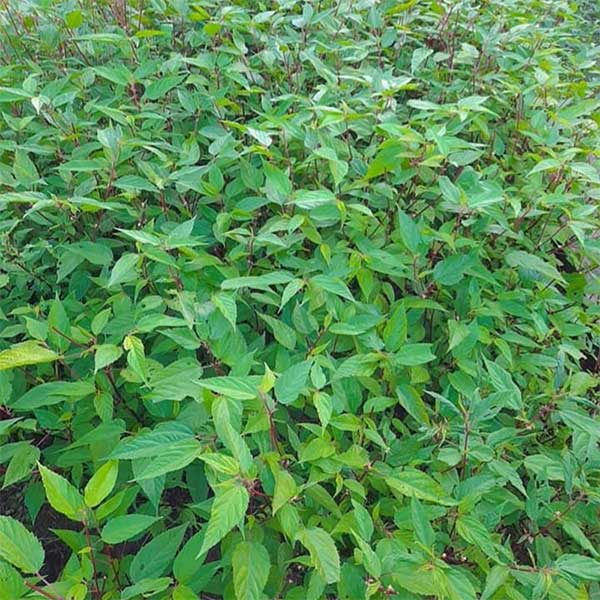A type of vegetable with numerous benefits for digestion, joints, cardiovascular health, and helps cool the body in summer, is easily found in Vietnamese markets.
Jute leaves are a familiar vegetable for Vietnamese people, especially favored in summer for their cooling properties, digestive benefits, and prevention of heatstroke. According to traditional Chinese medicine, jute leaves have a sweet taste, are cooling in nature, promote urination, improve respiratory function, help expel phlegm, possess anti-inflammatory properties, aid in blood coagulation, enhance milk production, and support pregnancy. This vegetable is also used in remedies for heatstroke, constipation, urinary retention, and coughing up blood.

This vegetable is low in calories, and cooking it increases its vitamin and nutrient content.
Modern medical studies have shown that 100g of jute leaves contains 3140mg of iron, 306mg of the amino acid leucine, 33mg of vitamin C, along with many other minerals such as magnesium, potassium, folate, and vitamin A. This vegetable is low in calories, and cooking it helps increase its vitamin and nutrient content.
With its low price, easy availability in Vietnamese markets, and numerous health benefits, many people refer to jute leaves as “ginseng for the poor.”
Benefits of Jute Leaves
Promotes Bowel Movement and Aids Digestion
The water and fiber content in jute leaves is very high. Additionally, the mucilage in this vegetable stimulates intestinal motility, lubricates the intestines, aids in easy digestion, and prevents indigestion and constipation.
Increases Breast Milk Production
For pregnant and breastfeeding women, consuming jute leaves helps support pregnancy and increases breast milk production due to the abundant water, vitamins, and minerals found in this vegetable.
Prevents Anemia
Jute leaves are rich in iron and vitamin K, helping to prevent anemia and are essential for the blood clotting process. Women who have just given birth can consume jute leaves to replenish iron and enhance blood production.

Crab soup with jute leaves and water spinach.
Good for Cardiovascular Health
Jute leaves contain a higher amount of omega-3 compared to many other vegetables. Omega-3 is an essential fat for brain development, beneficial for cardiovascular health, and helps reduce inflammation in the body. However, the conversion rate of omega-3 in this vegetable is relatively low, so if you want to supplement omega-3, you should combine it with a variety of other foods.
Furthermore, jute leaves have been shown to reduce bad cholesterol and increase good cholesterol in the body. High levels of bad cholesterol in the blood can lead to atherosclerosis, posing risks for heart attacks and strokes. Consuming fiber-rich vegetables and antioxidants like lycopene found in jute leaves can help prevent heart disease.
Improves Bone Health
Calcium and magnesium found in jute leaves are two essential minerals needed for bodily functions, maintaining bone health, and ensuring strong teeth. Without magnesium, bones cannot effectively absorb calcium.
Boosts Immunity
A serving of cooked jute leaves can provide 32% of the daily vitamin C requirement for the body. Vitamin C helps strengthen the immune system, fight infections, reduce inflammation, maintain healthy skin, and promote quick wound healing. Additionally, vitamin A in jute leaves is also important for the immune system.

Vitamin A in jute leaves is also important for the immune system.
In addition to these benefits, jute leaves also have potential in preventing eye problems, guarding against colds and flu, protecting cells from oxidative damage, improving skin and hair health, and supporting hepatitis prevention.
Precautions When Eating Jute Leaves
While jute leaves are good for health, because of their cooling nature, those prone to diarrhea or with cold stomachs should avoid consuming too many of this vegetable.
Healthy individuals should also not eat jute leaves more than five times a week to avoid indigestion.
Children under five years old are also advised to limit their consumption of jute leaves to prevent interference with calcium and zinc absorption during their bone and brain development stages.
When washing jute leaves, be careful not to squeeze them too hard, as this can destroy the beneficial mucilage.


















































